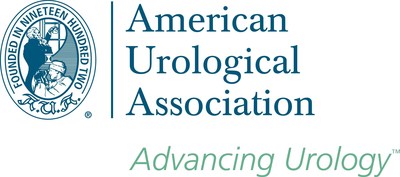Attention: Restrictions on use of AUA, AUAER, and UCF content in third party applications, including artificial intelligence technologies, such as large language models and generative AI.
You are prohibited from using or uploading content you accessed through this website into external applications, bots, software, or websites, including those using artificial intelligence technologies and infrastructure, including deep learning, machine learning and large language models and generative AI.
AUA Responds to USPSTF Final Recommendations on Screening for Prostate Cancer
LINTHICUM, Md., May 8, 2018 /PRNewswire-USNewswire/ -- The American Urological Association (AUA), today released the following statement in response to the U.S. Preventive Services Task Force (USPSTF) final recommendation statement on Screening for Prostate Cancer. The statement below is attributed to AUA President J. Brantley Thrasher, MD, FACS:
The AUA commends the USPSTF for its decision to maintain its upgraded recommendations for prostate cancer screening in men ages 55 to 69. The final recommendations released today support screening in this age group and are in direct alignment with the AUA's clinical practice guideline and guidelines from most other major physician groups – including the American Cancer Society, the American College of Physicians, the American Society of Clinical Oncology and the National Comprehensive Cancer Network – all of which advocate for shared decision making.
We agree with the USPSTF that African American men and men with a family history of prostate cancer are at an increased risk of developing the disease, and that they should discuss with their physicians the benefits and risks of testing in order to make a shared, informed decision.
Regarding the USPSTF's advice to not screen men over age 70: While we agree that a number of older men are not candidates for prostate cancer testing, we believe that select older, healthier men may garner a benefit. We urge those men to talk with their doctors about whether prostate cancer testing is right for them. Like the USPSTF, the AUA acknowledges there is limited evidence surrounding the benefits and risks of prostate cancer testing in men over 70, and we too support the call for increased research to fill the evidence gaps and better inform recommendations for these individuals.
The USPSTF final recommendation statements on the screening for prostate cancer – and the process used to develop them – demonstrate the value of involving specialists, patients and the medical community in creating reasonable and thoughtful clinical guidance that better aligns to and reflects the nation's clinical and research landscapes. We thank the USPSTF for implementing strategies to solicit feedback from the community on its research plan, for engaging urologists to review the evidence report upon which these recommendations were based, and for taking into account comments from the prostate cancer community in finalizing this guidance. These improved efforts illustrate how the USPSTF, specialists, patients and the community as a whole must align resources and continue to work together to improve the health of all Americans.
Furthermore, we applaud Representative Marsha Blackburn (R-TN-7), Representative Bobby Rush (D-IL-1) and other leading lawmakers who have encouraged USPSTF to adopt a more transparent process that is inclusive of disease experts and other interested stakeholders. Legislation is needed to ensure transparency and regular input in the process from interested stakeholders and specialists with appropriate expertise.

About the American Urological Association: Founded in 1902 and headquartered near Baltimore, Maryland, the American Urological Association is a leading advocate for the specialty of urology, and has more than 21,000 members throughout the world. The AUA is a premier urologic association, providing invaluable support to the urologic community as it pursues its mission of fostering the highest standards of urologic care through education, research and the formulation of health policy.
Contact: Wendy Isett, AUA
410-689-3789, wisett@AUAnet.org
SOURCE American Urological Association
